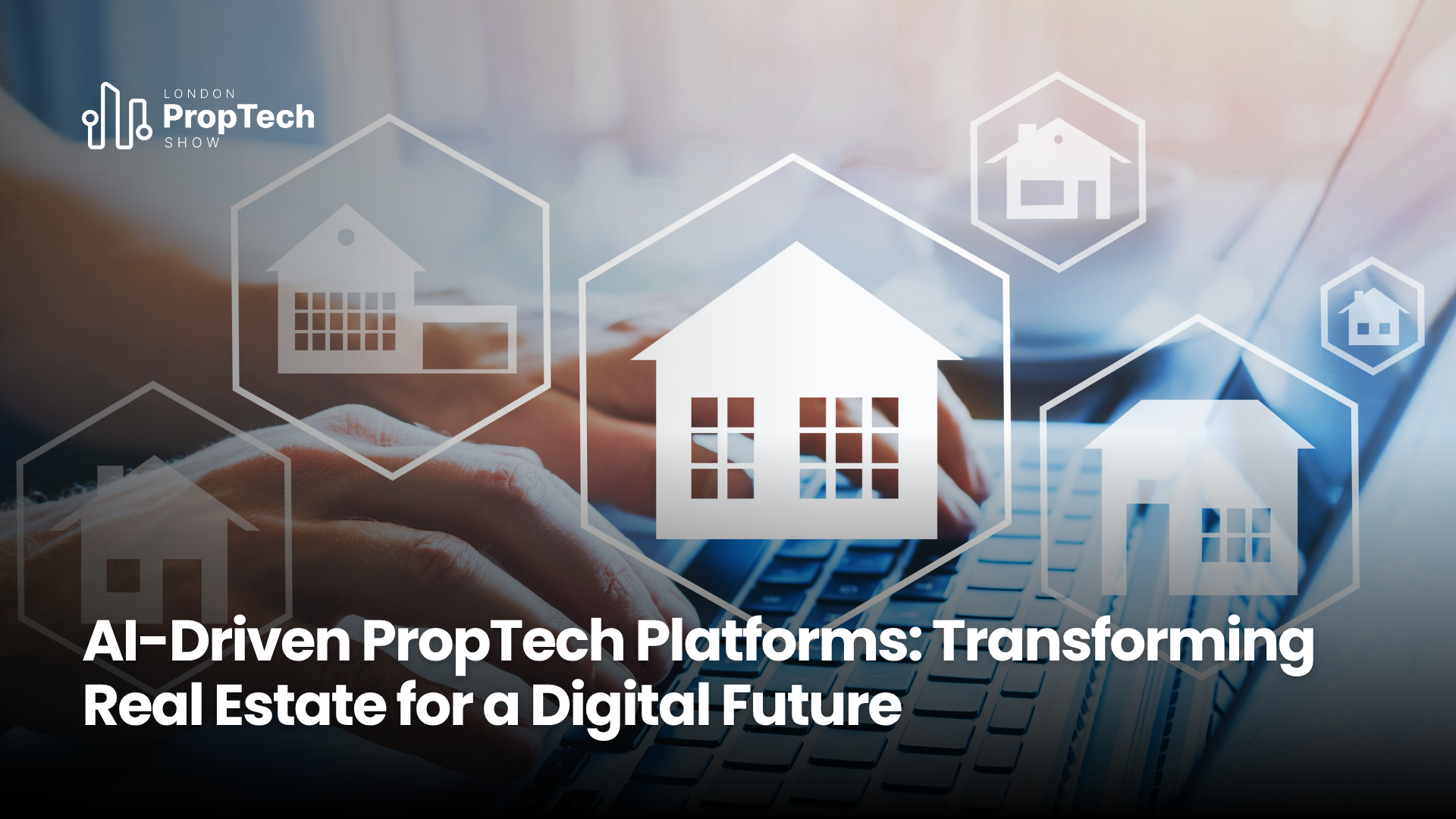The real estate industry stands at a crucial crossroads where technology continues to inject unprecedented efficiency, intelligence, and scalability into asset management, investment, and tenant experience. Among these emerging technologies, Artificial Intelligence (AI) has rapidly become a central catalyst powering the new generation of PropTech platforms systems designed to revolutionize how real estate operates in every segment: residential, commercial, and industrial.
This blog explores the surge of AI-driven PropTech, the core technologies powering it, its transformative impacts, practical applications today, and the future opportunities it unlocks for investors, developers, tenants, and operators.
The Rise of AI in PropTech: From Automation to Intelligence
While traditional property technology largely focused on digitization and process automation, the integration of AI ushers in a qualitatively new phase, one where systems learn, predict, and optimize. AI-enabled platforms move beyond rule-based automation and into predictive analytics, natural language processing, computer vision, and complex decision support models.
This shift is driven by exponentially growing datasets generated by IoT sensors, drones, satellite imagery, building management systems, transaction records, and social and economic data feeds. AI algorithms ingest and interpret these vast streams of real estate data to deliver actionable insights, automate routine functions, and unlock new value chains.
Core AI Technologies Powering PropTech Platforms
Several AI technologies form the backbone of modern PropTech platforms:
- Machine Learning (ML): Enables platforms to detect patterns and improve decision-making over time. Applied in price valuations, demand forecasting, and tenant behaviour prediction.
- Natural Language Processing (NLP): Powers chatbots, lease document analysis, and sentiment analysis to enhance customer interactions and contract management.
- Computer Vision: Processes images and video feeds from drones and cameras for property inspections, security monitoring, and construction progress tracking.
- Predictive Analytics: Combines ML and statistical models to forecast maintenance needs, market trends, and energy consumption.
- Robotic Process Automation (RPA) with AI: Automates lease administration, invoicing, and compliance reporting, reducing manual errors and cost.
Together, these technologies can deliver real-time monitoring, intelligent asset management, enhanced customer experiences, and improved transparency all critical in a fast-paced, fragmented real estate ecosystem.
Transformative Impacts of AI-Driven PropTech Platforms
AI-powered PropTech platforms are reshaping the real estate landscape in several profound ways:
1. Enhanced Property Valuation and Market Intelligence
AI algorithms analyze comparable sales, economic indicators, zoning regulations, local amenities, and macro trends to provide dynamic and hyper-localized valuations. Platforms can model multiple economic scenarios, adjust instantly to new market data, and identify undervalued opportunities, helping investors and developers make smarter capital allocation decisions.
2. Predictive Maintenance and Operations Efficiency
Sensors embedded throughout buildings generate continuous operational data temperature, air quality, energy usage, equipment condition which AI platforms interpret to predict maintenance needs before failures occur. This predictive maintenance approach reduces downtime, maintenance costs, and operational disruptions, significantly extending asset lifespans and tenant satisfaction.
3. Tenant Experience and Personalization
AI-powered customer relationship management (CRM) platforms leverage natural language processing and behaviour analytics to create personalized tenant engagement. Intelligent chatbots handle routine inquiries instantly, while occupant data shapes tailored recommendations for services, amenities, and space utilization. Enhanced digital interactions translate into stronger tenant retention and loyalty.
4. Automated Lease and Contract Analysis
AI contract analytics tools parse complex legal language, flagging risks, inconsistencies, or renewal opportunities faster than human review. These platforms allow property managers and investors to monitor lease compliance, recognize revenue leakage, and streamline negotiation processes, mitigating risks through proactive insights.
5. Energy Optimization and Sustainability Compliance
With growing ESG regulations, AI-driven platforms integrate energy consumption data from IoT devices with weather forecasts and occupancy patterns to optimize HVAC and lighting systems. Real-time adjustments reduce carbon footprints, help meet regulatory targets like EPC rating requirements, and qualify green building certifications all vital to modern asset value.
6. Construction and Development Intelligence
From automated site inspections using drones and computer vision to AI-assisted project management, AI platforms improve the forecasting of timelines, construction costs, and resource allocation. Early risk detection through data analytics prevents overruns and supports sustainable, timely delivery.
Leading Players: AI PropTech Innovators in the UK and Europe
The UK and broader Europe have become key hubs for AI-powered PropTech, boasting a dynamic landscape of companies at the forefront of digital transformation:
- Nimbus Maps (UK): This platform harnesses AI and geospatial data to help property professionals analyze land, uncover off-market opportunities, and assess site potential for investors and developers. Advanced mapping and analytics have unlocked smarter, data-led site acquisition and planning decisions.
- fu3e. (UK): fu3e.’s AI-powered dashboard enables real estate funds, owners, and developers to monitor risk, costs, and project milestones in real time. Its algorithms automate risk assessments and deliver operational analytics, supporting active management and compliance.
- Street Group (UK): Manchester’s Street Group leverages AI for automated marketing, prospecting, and client management in agency operations. Their Spectre platform optimizes lead generation, enabling estate agents to win new instructions more effectively.
- Jitty (UK): Jitty employs machine learning as a homebuying assistant, offering personalized property matches and market recommendations, particularly tailored for first-time buyers navigating complex markets.
- Orbital Witness (UK): This platform deploys AI and satellite imagery to automate property due diligence. By analyzing legal risks and environmental constraints, Orbital Witness reduces diligence time for law firms, developers and institutional investors.
- Deepki (France, Europe): Deepki is a European leader in AI-driven ESG analytics, helping commercial real estate owners and portfolio managers benchmark and improve sustainability performance critical for meeting regulatory standards and investor transparency.
- Coadjute (UK): By combining blockchain and AI, Coadjute delivers secure, real-time data sharing between estate agents, conveyancers, and mortgage brokers, accelerating transaction times and improving transparency across the UK market.
- Plentific (UK): Plentific’s AI-enhanced property management connects landlords and housing providers to maintenance and compliance services via an integrated marketplace, streamlining operations and improving tenant experience.
These companies exemplify the expanding influence of AI across all real estate verticals in Europe from asset management and compliance to transactions, sustainability, and tenant experience.
Overcoming Challenges and Adoption Barriers
Despite immense potential, AI-PropTech adoption faces hurdles including:
- Data fragmentation: Many buildings operate with siloed legacy systems. Integrating diverse data streams into AI-ready platforms requires significant upfront investment and standardization.
- Skills gap: Real estate traditionally lacks deep in-house AI expertise, necessitating partnerships or new talent acquisition strategies.
- Regulatory uncertainty: As AI platforms analyze sensitive tenant and operational data, privacy, cybersecurity, and compliance frameworks require careful navigation.
- Cost concerns: Early adoption costs can be a barrier, especially for smaller portfolios or less technologically mature owners/operators.
Overcoming these challenges demands cross-sector collaboration among PropTech vendors, institutional investors, property owners, and regulators. Successful deployments focus on scalable pilot projects demonstrating real ROI and tenant benefits.
The Future: AI and PropTech as an Unstoppable Force
Looking to 2026 and beyond, the synergy of AI and PropTech platforms is expected to deepen further:
- Integration with blockchain and tokenized ownership for transparent, automated asset provenance and trading.
- Rise of generative AI models creating adaptive building designs, retrofit plans, and personalized tenant environments.
- Expanding use of digital twins powered by AI to simulate and optimize building performance holistically in real-time.
- More autonomous property operations including robotic inspections, AI-guided maintenance scheduling, and AI-enabled investment advisory.
For investors and stakeholders attending events like the London PropTech Show, understanding this landscape is critical. AI-driven PropTech will not just increase efficiency it will redefine how value is created, sustained, and shared across the real estate ecosystem.
Conclusion
AI-driven PropTech platforms are the cornerstone of next-generation real estate innovation. They transform vast data into actionable intelligence that powers smarter investments, sustainable operations, and richer tenant experiences. While adoption comes with challenges, the marketplace rewards those embracing AI with increased transparency, operational resilience, and competitive advantage.
In 2025, the convergence of AI and PropTech is reshaping real estate globally and offers a blueprint for a more digital, sustainable, and flexible future. Stakeholders prepared to adopt and scale these platforms will lead the industry transformation now underway.


